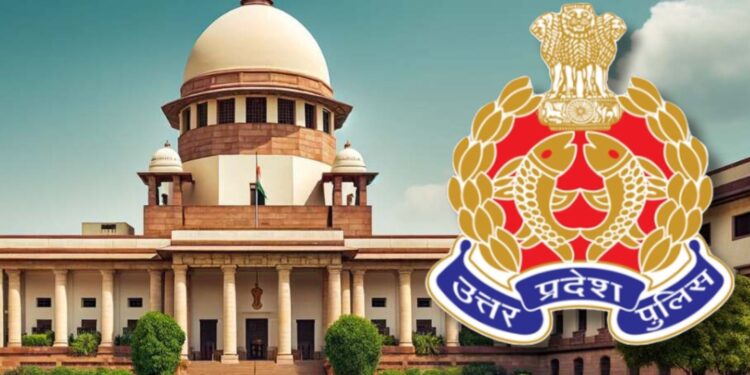The Supreme Court on Thursday strongly criticized the Uttar Pradesh Police for filing multiple criminal cases against gangster Anurag Dubey, even in instances where the allegations were civil. Justices Surya Kant and Ujjal Bhuyan, who were hearing the case, noted that such actions by the police were inappropriate and stressed the need for the force to be sensitized on the matter. The Court warned that it would not hesitate to issue stringent orders against the police if they continued to misuse the criminal justice system.
The police had argued that Dubey was evading the investigation and had failed to appear before the concerned officer. In response, Justice Kant remarked, “He is probably avoiding you because he knows you will file another case against him. How many cases are you planning to file? Tell your DGP we can pass strong orders. You are calling a registered property sale ‘land grabbing.’ Is this a civil or criminal matter? The police are overstepping their boundaries, acting as a civil court, and need to be sensitized.” The judge further questioned the police’s outdated approach, asking why they were sending summons by letter instead of using modern digital methods.
The Bench was hearing Dubey’s appeal against the August 13 order of the Allahabad High Court, which had rejected his petition to quash an extortion case filed against him. In October, the Supreme Court upheld the High Court’s decision on the extortion case but issued notice on Dubey’s application for anticipatory bail. The Court had also granted him interim protection from arrest in the matter.
On Thursday, the Supreme Court extended Dubey’s interim protection from arrest until the next hearing, which is set for January 16, 2025. Dubey was instructed to keep his mobile phone on and cooperate fully with the investigation. The Court reiterated that Dubey could not be arrested in any case without prior permission from the Court, and the interim bail would continue until the next hearing. The Court’s intervention signals its concern over the use of criminal proceedings in civil disputes and the need for greater accountability and clarity within law enforcement.
The Supreme Court urged the UP police to be sensitized about filing criminal cases against gangsters in civil matters, expressing concern over misuse of criminal law.
Previous Post

















